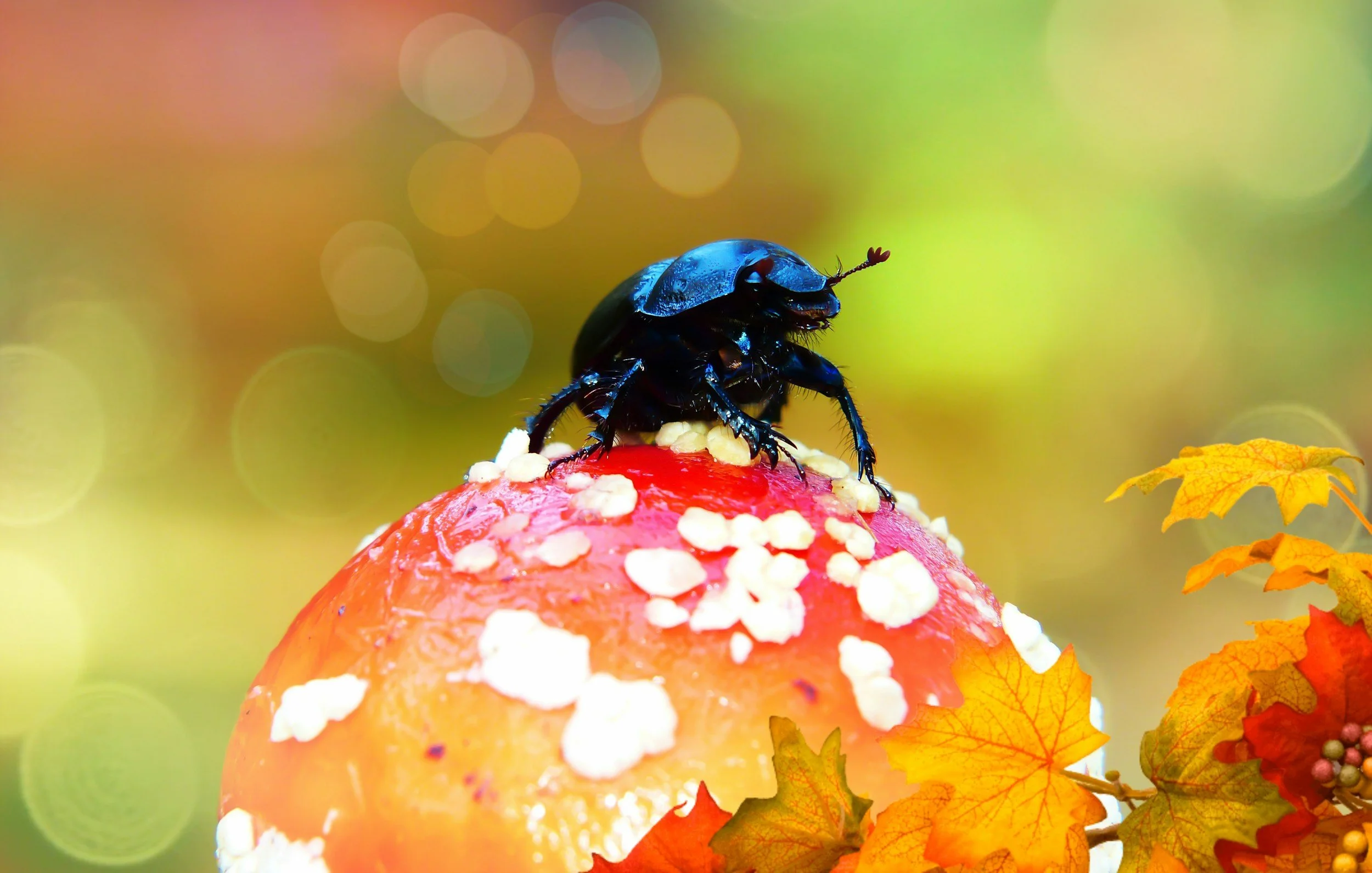Beneficial Bugs
What Are Beneficial Bugs?
Not all insects are pests. In fact, most bugs you see buzzing, crawling, or fluttering by are quietly doing essential work. Beneficial insects are those that pollinate plants, control pest populations, decompose organic material, and help keep ecosystems in balance.
They don’t do it for us, of course, but we benefit enormously from their presence. Without them, we’d have fewer flowers, lower food production, and a messier natural world.
Why They’re in Our Gardens
We tend to think of bugs as invaders, but often it’s the opposite—we’ve taken over their habitat. And many insects, especially the helpful ones, have adapted well to our yards, parks, and farms.
Lawns, flowerbeds, and vegetable gardens can all be insect havens, if we let them.
Flowers = nectar for pollinators
Vegetables = aphid buffets (for ladybugs)
Compost = decomposer paradise
Mulch = habitat for beetles and ground-dwelling allies
If your space is full of life, you’re probably doing something right.
Who Are the Beneficial Bugs?
Here are a few insect MVPs you’ll want to welcome:
Bees and Butterflies: These pollinators make fruits, vegetables, and flowers possible. No buzzing = no blueberries.
Ladybugs: Not just cute. They’re tiny, voracious aphid hunters. A single ladybug can eat dozens of aphids a day.
Lacewings and Parasitic Wasps: You may not notice them, but they patrol your garden, targeting caterpillars, mites, and other destructive insects.
Dung Beetles and Ants: They clean up waste, aerate soil, and speed up decomposition. Think of them as nature’s sanitation workers.
Fireflies: Besides lighting up summer evenings, their larvae prey on slugs and snails, which can damage plants.
Why “Pest” Isn’t Always Accurate
Slapping the word "pest" on an insect often comes from misunderstanding its role. Some insects we fear or dislike actually:
Improve soil fertility
Break down organic material
Pollinate essential plants
Keep destructive insect populations in check
Even bugs that seem annoying, like wasps, serve a purpose. Many are natural predators of crop-damaging insects.
The Real Issue: Overuse of Insecticides
When we try to eliminate “bad” bugs, we often take the good ones with them. Broad-spectrum insecticides don’t distinguish between friend and foe.
Worse, these chemicals can:
Pollute soil and water
Harm birds, amphibians, and pets
Cause pesticide resistance
Disrupt food chains
Endanger pollinators already in decline
Bug sprays may seem like a quick fix, but they often create bigger problems long-term.
How to Support Beneficial Bugs
The goal isn’t to eliminate insects—it’s to strike a balance. Here’s how:
Plant native flowers and shrubs to support pollinators
Avoid synthetic pesticides; use insecticidal soap, neem oil, or manual removal when needed
Leave leaf litter and dead wood in a corner of your yard—habitat matters
Attract birds, frogs, and other natural insect-eaters
Turn off outdoor lights at night to protect fireflies and moths
Seal cracks and store food to keep unwanted bugs outside
Final Thought
Insects aren’t just background noise—they’re the unsung backbone of healthy ecosystems. When we protect and support beneficial bugs, we support everything that depends on them, including ourselves.
So next time you see a bee on a blossom or a ladybug crawling up a leaf, take a moment to appreciate the work being done. These small creatures are doing big things and the best thing we can do is make space for them to thrive.


